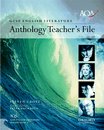Death of a Naturalist - S. Heaney.All year the flax-dam festered in the heart
Of the townland; green and heavy headed
Flax had rotted there, weighted down by huge sods.
Daily it sweltered in the punishing sun.
Bubbles gargled delicately, bluebottles
Wove a strong gauze of sound around the smell.
There were dragon-flies, spotted butterflies,
But best of all was the warm thick slobber
Of frogspawn that grew like clotted water
In the shade of the banks. Here, every spring
I would fill jampotfuls of the jellied
Specks to range on window-sills at home,
On shelves at school, and wait and watch until
The fattening dots burst into nimble-
Swimming tadpoles. Miss Walls would tell us how
The daddy frog was called a bullfrog
And how he croaked and how the mammy frog
Laid hundreds of little eggs and this was
Frogspawn. You could tell the weather by frogs too
For they were yellow in the sun and brown
In rain.
Then one hot day when fields were rank
With cowdung in the grass the angry frogs
Invaded the flax-dam; I ducked through hedges
To a coarse croaking that I had not heard
Before. The air was thick with a bass chorus.
Right down the dam gross-bellied frogs were cocked
On sods; their loose necks pulsed like sails. Some hopped:
The slap and plop were obscene threats. Some sat
Poised like mud grenades, their blunt heads farting.
I sickened, turned, and ran. The great slime kings
Were gathered there for vengeance and I knew
That if I dipped my hand the spawn would clutch it.
Innocence of nature and childhood memories:
“Bubbles gargled delicately” – like a Disney film, personification.
“shade of the banks” – imagery: we are protected as children.
“jampotfuls of the jellied / Specks to range on window-sills at home,/On shelves at school” – alliteration, emphasizing vivid childhood memories of nature in a nuturing, learning environment.
“burst into nimble-/Swimming tadpoles” – power of a life essence, the word burst is fairly onomatopoeic, emphasizing the speed of growth and the energy of youth.
“daddy frog was called a bullfrog / And how he croaked” –idiosyncratic (typical) of an adult way of explaining nature to a young person. Nicely patronizing.
Death and destruction in nature and adulthood.
Semantic field of words associated with pain and destruction – “festered”, “rotted” , “punishing”, “rank”, “vengeance”.
“In rain” , “Before” - brilliant uses of enjambment to highlight the change from happiness in childhood to pain in adulthood.
“great slime kings”, “angry frogs” – compare these to the nimble tadpoles from the first stanza. Personification.
War imagery, showing violence in nature “Invaded”, “slap and plop were obscene threats”, “Poised like mud grenades”.
Choice of negative imagery to do with adulthood: “loose necks pulsed like sails” showing ageing and loss of beauty.
Threat of adulthood looming is highlighted by the power of three in “I sickened, turned, and ran” and in the personification of the frogspawn as a violent predator lurking “if I dipped my hand, the spawn would clutch it”.

